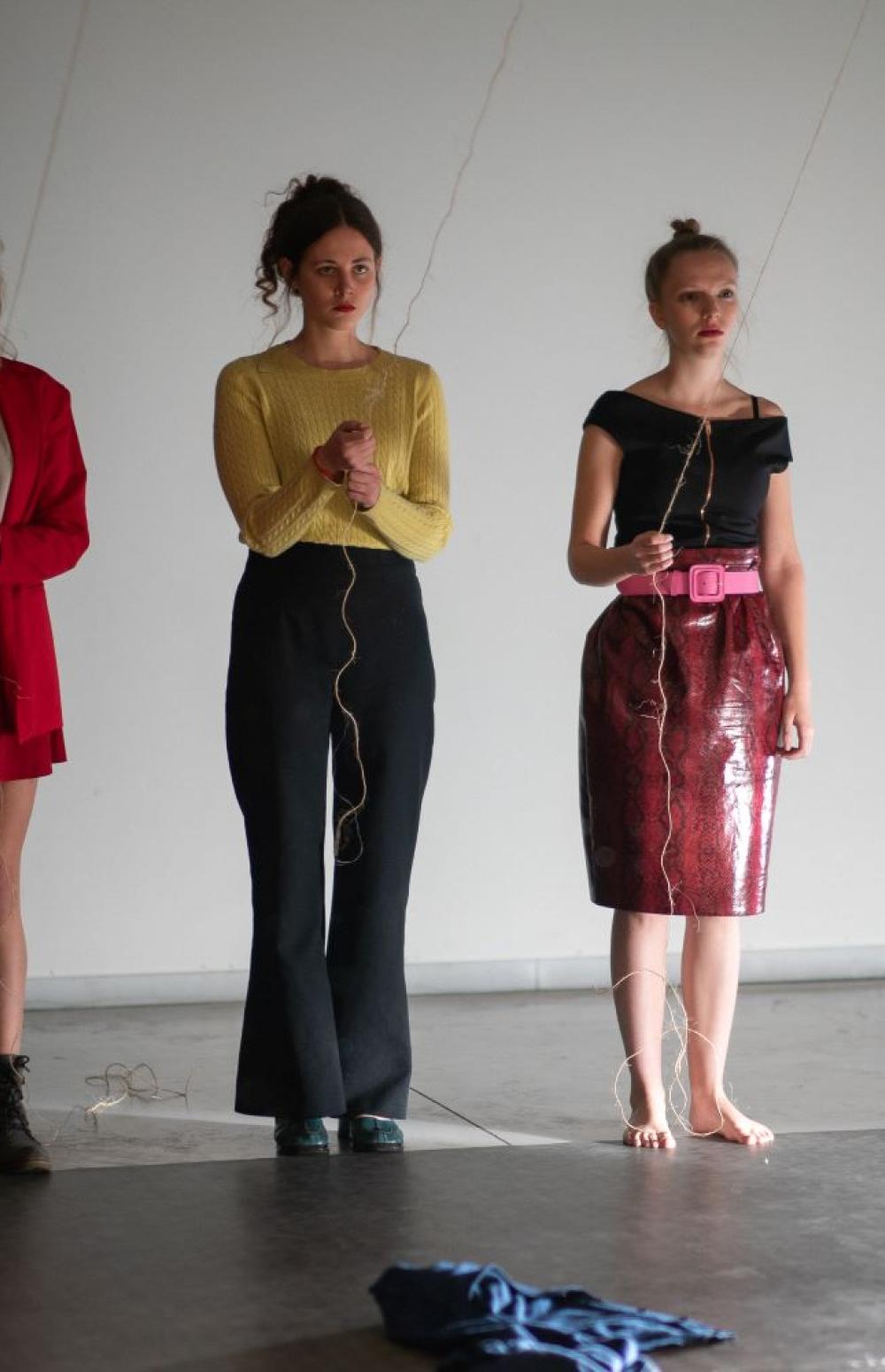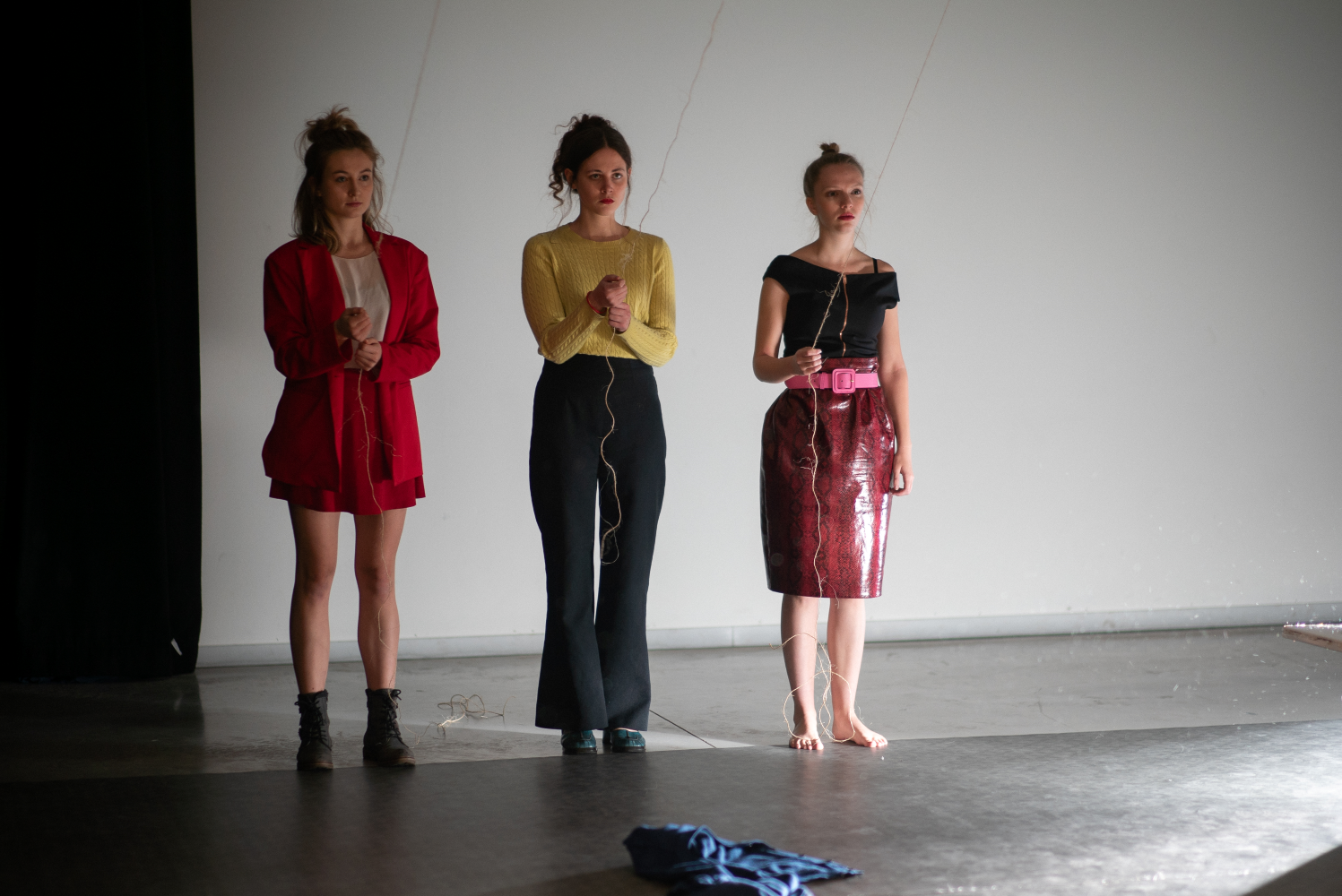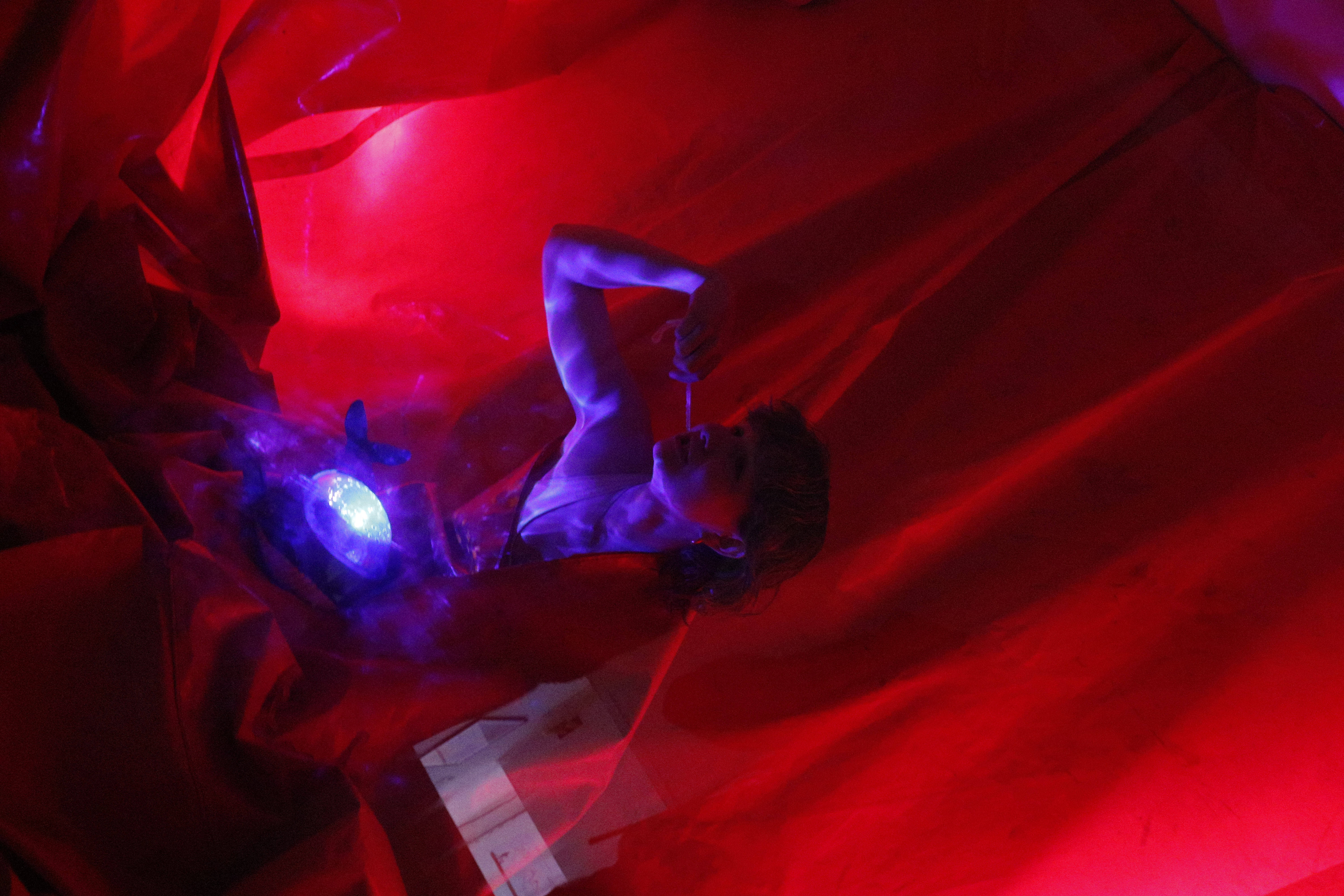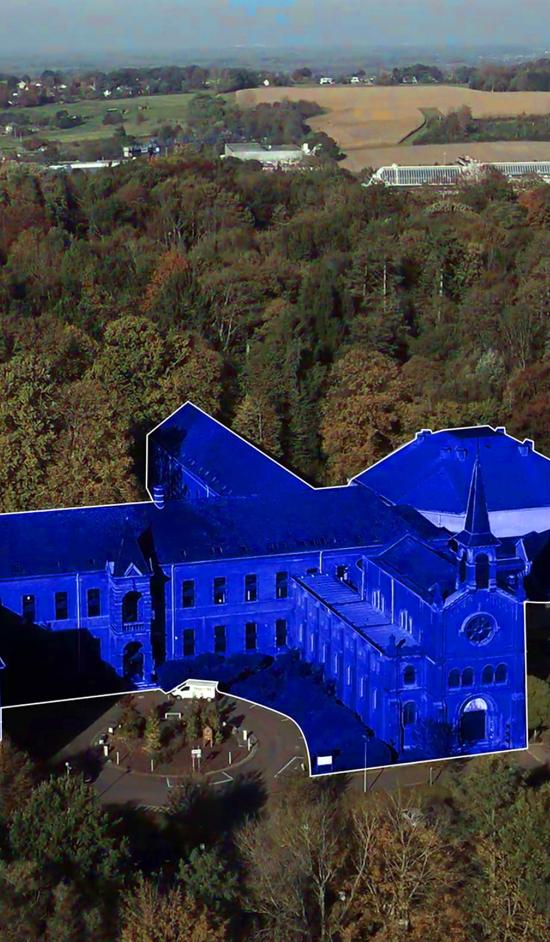
Campus Leuven / Lemmens
DRAMA: PLAYING AND CREATING
Acting is playing and creating in the here and now. Playing with language, with text, with your body and voice. At Luca drama, language and text is where we start from. Together with your teachers and fellow students, you dive into contemporary text material: dialogues, monologues, film fragments... But you also perform the classics and engage in experimental work.
You are coached individually and collectively, by a diverse team of teachers who have an active practice in the performing arts landscape. Theoretical courses help you build up a broad frame of reference. You gain insight into how your body and voice work and learn to use them on stage.
You cooperate with students from the writers’ programme in joint creative projects. In four open studio weeks you experiment with materials and working methods. We teach you to master stage techniques and coach you in setting up your own performances.
Through interdisciplinary projects with the other art programmes of LUCA School of Arts, you also develop acting and creating skills in music theatre, TV and film.
You learn to function broadly and flexibly, as a creating and performing artist. You develop your craft in relation to the world and the arts field. With a solid entrepreneurial spirit, with a caring, critical and committed attitude.
- In the first three semesters of the bachelor's programme, we focus on a wide range of methods in playing and creating. We focus on craft and skill as the basis for artistic development.
- In the next three semesters, broadening and deepening modules will stimulate you to develop your own artistic voice, in relation to contemporary developments in the artistic field. Via electives, you can focus on acting for camera and interdisciplinary work.
- At the end of your bachelor's programme, you present a fully-fledged performance in cooperation with other theatre makers.
Exchange students are welcome in the second or third phase of our study programme. In these phases, the deepening of artistic skills and the development of an own artistic profile are central.
The student comes into contact with various artists in a number of projects (two projects in the first semester, three in the second semester ). In addition, in the theory subjects, the formulation of own standpoints in relation to the arts, the world and .... are central.
The study programme makes the choices for the projects together with the exchange student, on the basis of the course already taken, language, etc....

A good command of English (level B2) is required to make the most of your stay with us. Campus Lemmens does not own student accommodation. Therefore, you will have to rent a room on the private housing market for the duration of your stay. To help you in your search, please visit to the website of the KUL or contact our student support services.
Interested in this course?
All Erasmus+ Exchange Students need to apply via the exchange application procedure of LUCA School of Arts. During your application process, you can indicate the LUCA campus of your choice and the exchange programme you wish to apply for. Notice that not all programmes are open for incoming exchange students in both semesters. An overview can be found here.
- The deadline for the Autumn Semester / full year is April 1
- The deadline for the Spring Semester is October 1
Outcome Exchange Application
The outcome of the application can be expected within 4-6 weeks after the application deadline. Both you and your international coordinator will be informed about the result of your application by e-mail. No need to inquire about the outcome yourself.
Where do you have class?
Facilities & campus life
- Our very own campus, situated in a parc in one of Europe's oldest university towns
- An artistic meeting space for theater maker and musicians
- A coworking space with rehearsal studio's concert halls and theater venues
- An art centre with concerts, performances and theater shows, lectures and artist talks, book launches, graduation shows and showcases
- An expertise centre for young perfomnce artists with an art library, production support and a lending service
- An intricate network of cultural partners where students rehears and show the results of their projects
Location
Lemmensberg 3
3000 Leuven
info.lemmens@luca-arts.be
+32 2 447 15 00

Contact
If you need more information, don't hesitate to contact us:
International Coordinator Campus Lemmens
Diana Solomonidou
diana.solomonidou@luca-arts.be
Campus Lemmens
Lemmensberg 3
3000 Leuven
+32 2 447 15 00
info.lemmens@luca-arts.be
At LUCA we attach great importance to the quality of our courses
If the basic principle of the policy plan means that 'quality is our driving force', and that every aspect of the policy can be tested against this, then LUCA undeniably wants to develop and nurture a strong quality culture: a culture that leaves based on trust in people with talent and expertise, and which is aimed at valuing, inspiring and improving.
The formal quality framework for training within LUCA was named KOPERA, which stands for: Critically Analyzing the Quality of Training with Peers in Own Direction.
For KOPERA, LUCA starts from a vision of quality care that is based on trust and aimed at valuing, inspiring and improving.
During the six-year KOPERA cycle, each training course receives a panel of critical friends who examine the implementation of the quality characteristics and examine how the training contributes to the general LUCA policy.
The final element of KOPERA is the ultimate assurance of training quality. The key question is: "Does the program have a good quality culture that follows the 'plan-do-check-act' circle?"
LUCA publishes a quality sheet for each course. You can find this on the Education Quality page.


